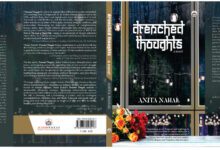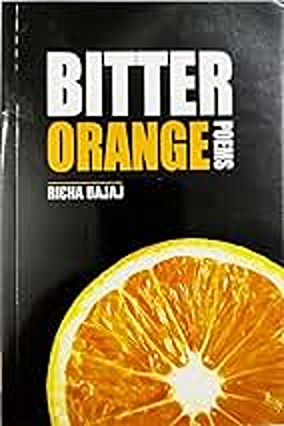Tripathi shines in “Main Atal Hoon,” but concerns linger over its portrayal. “The Beekeepers” buzzes with action, emotion, and political intrigue thanks to its Queen Bee allegory. Sukanya reviews two films exclusively for Different Truths.

“Main Atal Hoon,” directed by Ravi Jadhav, takes viewers on a captivating journey through the life and political career of Atal Bihari Vajpayee, played brilliantly by Pankaj Tripathi. While the film features commendable performances and visually stunning scenes, there is a subtle undercurrent that raises concerns about the portrayal of Atal.
Act 1: Political Odyssey and Cinematic Brilliance
The first act of the film delves into Atal Bihari Vajpayee’s political journey, seamlessly blending historical events such as the Kargil War and the Pokhran nuclear tests with personal details from his life. Pankaj Tripathi’s performance is excellent, capturing the essence of Vajpayee’s charismatic leadership. The cinematography, particularly the intense gaze exchanged through a nearly closed door, adds depth to the narrative.
Act 2: Intimacy and Performance
…we learn more about Atal’s personal life, including his relationships with family and friends.
As the film progresses, we learn more about Atal’s personal life, including his relationships with family and friends. The touching scenes in the garden, where Atal’s lover feels his touch on a flower in her hair, are well-crafted. Pankaj Tripathi and the supporting cast deliver standout performances, bringing the characters to life on screen.
Act 3: Departure from the Known Atal
Despite the film’s overall success, there is one notable observation: the actor’s personality appears to seep into the character of Atal Bihari Vajpayee. While this may enhance the cinematic experience, it begs the question of whether we are witnessing an accurate depiction of the historical figure or a mash-up of the character and the actor’s personality.
Character vs. Actor Persona
Pankaj Tripathi’s distinct style and charm, which have been highlighted in his previous roles, can occasionally overshadow Atal Bihari Vajpayee’s essence. At times, it looks like We are seeing Pankaj Tripathi rather than the legendary leader. The combination of the actor’s individuality and the character’s portrayal may slightly dilute the historical figure’s authenticity.
“Main Atal Hoon” stands out as a visually appealing and emotionally powerful biographical drama. The film successfully captures the turbulent political landscape as well as Atal Bihari Vajpayee’s struggles. However, at times, the fine line between the actor’s personality and the essence of the character blurs, leaving the audience with a performance that is equal parts Pankaj Tripathi and Atal Bihari Vajpayee. While this may not detract from the film’s overall impact, it does raise intriguing questions about the nuances of biographical portrayals in cinema.
***
After months of eager anticipation, fuelled by my friend’s persistent recommendations, I have finally carved out the time to indulge in the cinematic experience that is “The Beekeepers.”
Act 1: Introduction
Directed by the talented David Ayer, this film takes us on a riveting journey…
Directed by the talented David Ayer: this film takes us on a riveting journey, primarily centered around the tragic demise of Eloise Parker, which sets in motion a relentless pursuit of justice under the direction of her tenant, Adam Clay. While the initial character backstories may be perceived as somewhat lacking in depth, Act 3 takes an unexpected turn, introducing a surprising twist that redeems the earlier deficit in character development.
Act 2: Escalation
Moving on to Act 2, the film benefits greatly from Jason Statham’s commanding performance and the well-executed action sequences that effectively maintain the narrative’s momentum. However, a notable aspect that leaves the viewer yearning for more is the limited exploration of the Beekeeper organization. While the mystery surrounding this enigmatic group adds an element of intrigue; the absence of a comprehensive backstory may leave some audience members desiring a deeper understanding.
Act 3: Resolution
Jessica, the president, parallels the Queen Bee, manipulating politics like a hive. The analogy explores power complexities, showcasing Jessica’s moral choices. This subtle layer enriches the narrative with symbolism.
As we approach the Resolution in Act 3: the climax unfolds with an unexpected twist as Verona, a pivotal character, makes a decision that establishes a profound emotional connection. This turn not only serves to redeem her character but also adds a layer of complexity to the persona of the Beekeeper. Although the strategic omission of extensive character backstories contributes to maintaining the overall mystery, there is a sense that a more profound exploration of the inner workings of the organization could have elevated the film’s depth and nuance.
“The Beekeepers” offers an engaging blend of action and emotion.
“The Beekeepers” offers an engaging blend of action and emotion. Character development has highs and lows, but strategic choices keep the audience hooked. The Madam President–Queen Bee comparison adds a thought-provoking layer, contributing to the film’s richness. The movie successfully balances suspense, action, and emotion for a memorable cinematic journey.
Picture from IMBd






 By
By
 By
By
 By
By
 By
By